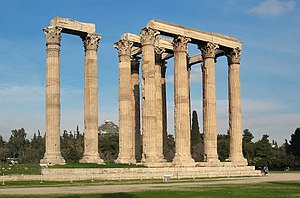
- Image via Wikipedia
PERHAPS the biggest big idea to gather speed during the last millennium was that we humans might govern ourselves. But no one really meant it.
What was really meant in most places was that we would elect people to govern us and sporadically renew or revoke their contracts. It was enough. There was no practicable way to involve all of us, all the time.
The headlines from Washington today blare of bailouts, stimulus, clunkers, Afpak, health care. But it is possible that future historians, looking back, will fixate on a quieter project of Barack Obama’s White House: its exploration of how government might be opened to greater public participation in the digital age, of how to make self-government more than a metaphor.
President Obama declared during the campaign that “we are the ones we’ve been waiting for.” That messianic phrase held the promise of a new style of politics in this time of tweets and pokes. But it was vague, a paradigm slipped casually into our drinks. To date, the taste has proven bittersweet.
Federal agencies have been directed to release online information that was once sealed; reporters from Web-only publications have been called on at news conferences; the new portal Data.gov is allowing citizens to create their own applications to analyze government data. But the most revealing efforts have been in “crowdsourcing”: in soliciting citizens’ policy ideas on the Internet and allowing them to vote on one another’s proposals.
During the transition, the administration created an online “Citizen’s Briefing Book” for people to submit ideas to the president. “The best-rated ones will rise to the top, and after the Inauguration, we’ll print them out and gather them into a binder like the ones the president receives every day from experts and advisors,” Valerie Jarrett, a senior adviser to Mr. Obama, wrote to supporters.
They received 44,000 proposals and 1.4 million votes for those proposals. The results were quietly published, but they were embarrassing — not so much to the administration as to us, the ones we’ve been waiting for.
In the middle of two wars and an economic meltdown, the highest-ranking idea was to legalize marijuana, an idea nearly twice as popular as repealing the Bush tax cuts on the wealthy. Legalizing online poker topped the technology ideas, twice as popular as nationwide wi-fi. Revoking the Church of Scientology’s tax-exempt status garnered three times more votes than raising funding for childhood cancer.
Once in power, the White House crowdsourced again. In March, its Office of Science and Technology Policy hosted an online “brainstorm” about making government more transparent. Good ideas came; but a stunning number had no connection to transparency, with many calls for marijuana legalization and a raging (and groundless) debate about the authenticity of President Obama’s birth certificate.
Related articles by Zemanta
- Currents: Democracy 2.0 Awaits an Upgrade (nytimes.com)









